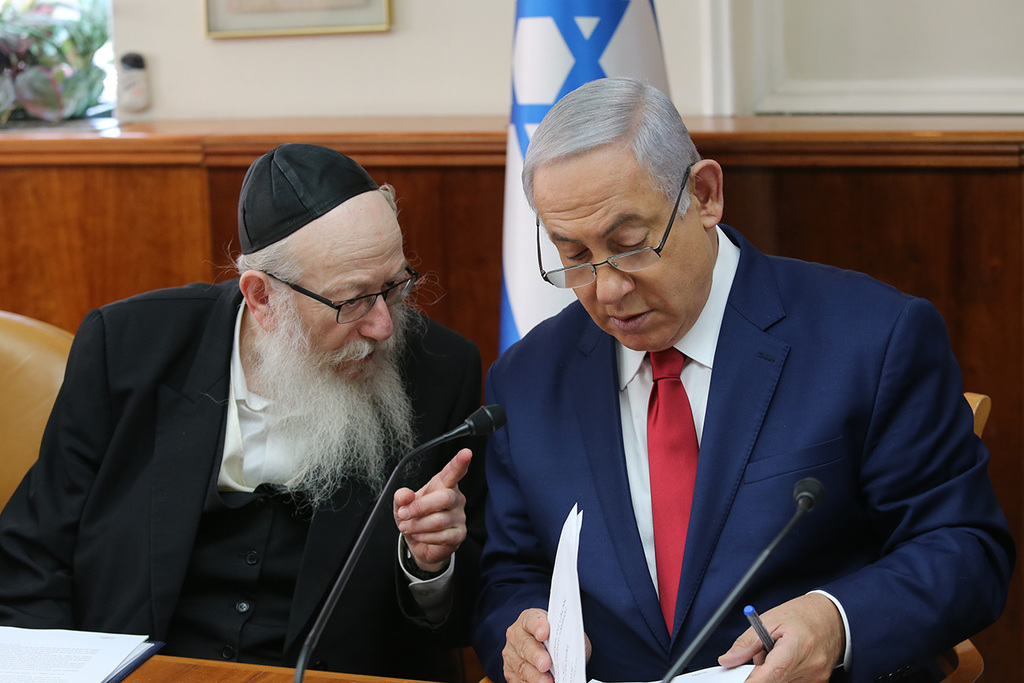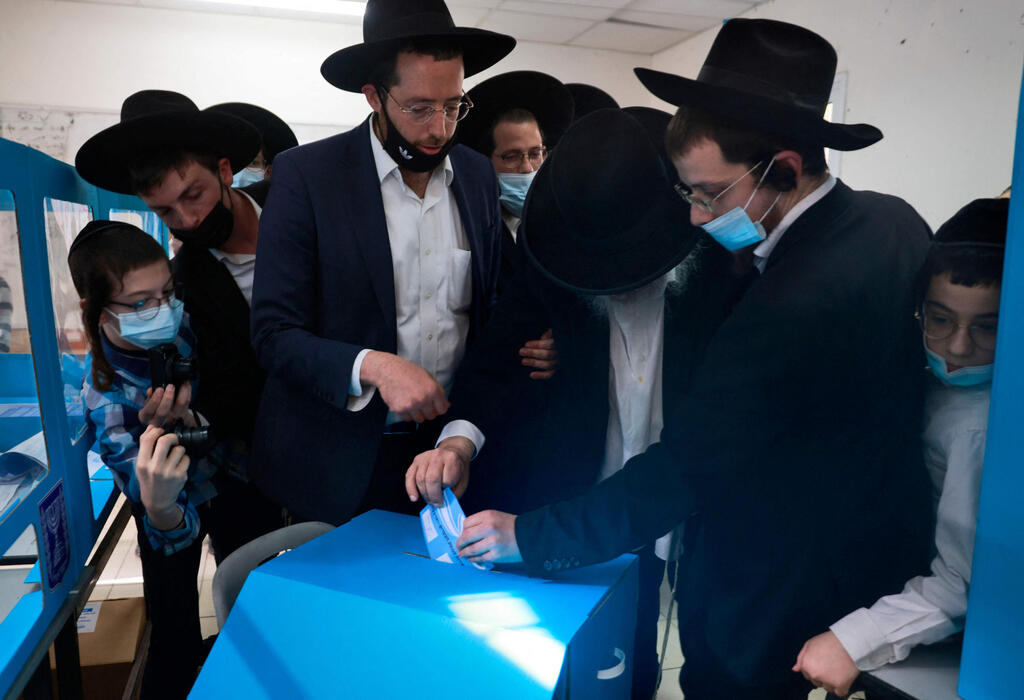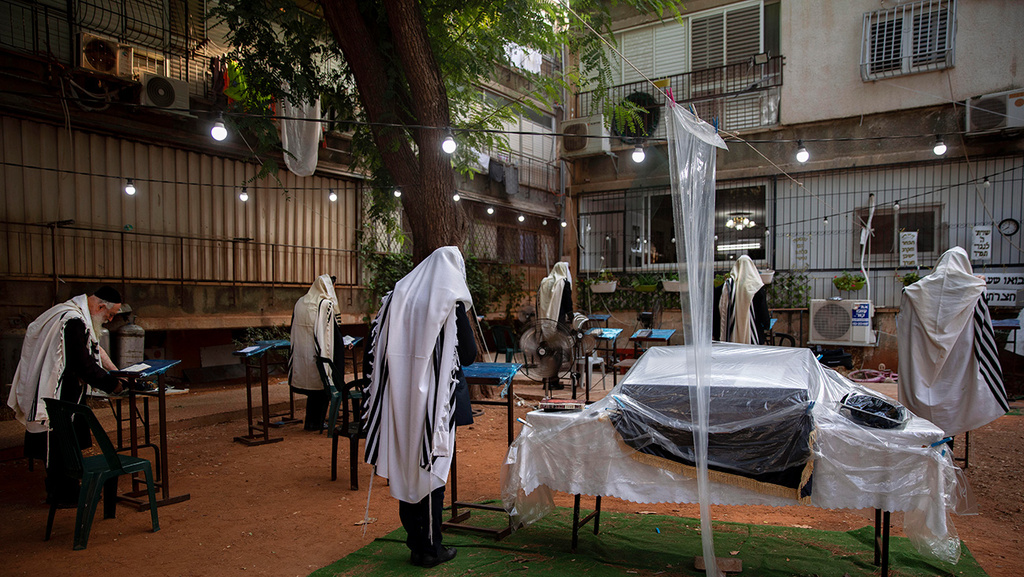When the recent election campaign began, it had the potential to reshape the entire Israeli political field.
There was opposition to Benjamin Netanyahu from within his own camp in the form of ex-Likud MK Gideon Saar's New Hope party, while the Religious Zionist alliance presented Haredi voters with a new alternative leadership.
3 View gallery


Benjamin Netanyahu with United Torah Judaism leader Yaakov Litzman
(Photo: Alex Kolomoisky)
In fact, the Haredi parties stood to lose many of their traditional constituents and see their political camp under Netanyahu defeated.
The ultra-Orthodox parties were having their feet held to the fire by their own base. Politicians were condemned for not opposing the government when schools were closed, religious practices restricted and secular neighbors accused the Haredi community of spreading disease and destroying their businesses.
The election campaign itself had no mass rallies where important rabbis traditionally appeared in front of the crowds and instructed their flocks to support certain political representatives.
And in fact thousands of voters did defect, their support elsewhere in what could be seen as a challenge to the traditional leadership.
But this is not an entirely new phenomenon. Haredi Israelis have been voting differently for a number of years.
3 View gallery


Ultra-Orthodox men help an aged member of the community vote in Bnei Brak, March 23, 2021
(Photo: AFP)
Some observers have named the shift the "Haredi spring," and although increasing numbers of the ultra-Orthodox community become eligible to vote each year, the United Torah Judaism party has not expanded accordingly in support or in size.
But even so, both UTJ and Shas have shown that they are a force to be reckoned with. After all, identity politics are a hard habit to break.
While some members of the community chose to show their leaders that they should not be taken for granted and voted outside the camp, they remained a small minority and could not bring about a real change.
Haredi participation in elections is high and most of the electorate still votes in for the traditional parties.
Some of the success of both Shas and UTJ can be attributed to Avigdor Liberman, whose anti-Haredi rhetoric kept many voters in line and united by his threats to strip them of their political power.
3 View gallery


Haredi men pray outdoors in ultra-Orthodox Bnei Brak due to coronavirus restrictions
(Photo: AP)
A vote for an ultra-Orthodox list was for many a response to the hate speech they have endured.
Haredi Jews are accused of living off taxpayers, and while there are some who study Torah and do not work, others in the community are productive members of Israeli society.
They are accused of having flouted coronavirus restrictions and spreading disease, but although some were indeed guilty as charged, others observed health regulations - even staying away even from the most precious religious ceremonies.
Some members of the Haredi electorate may have been tempted by the novel, but the majority of the community showed its loyalty and support for those who have supported them.

